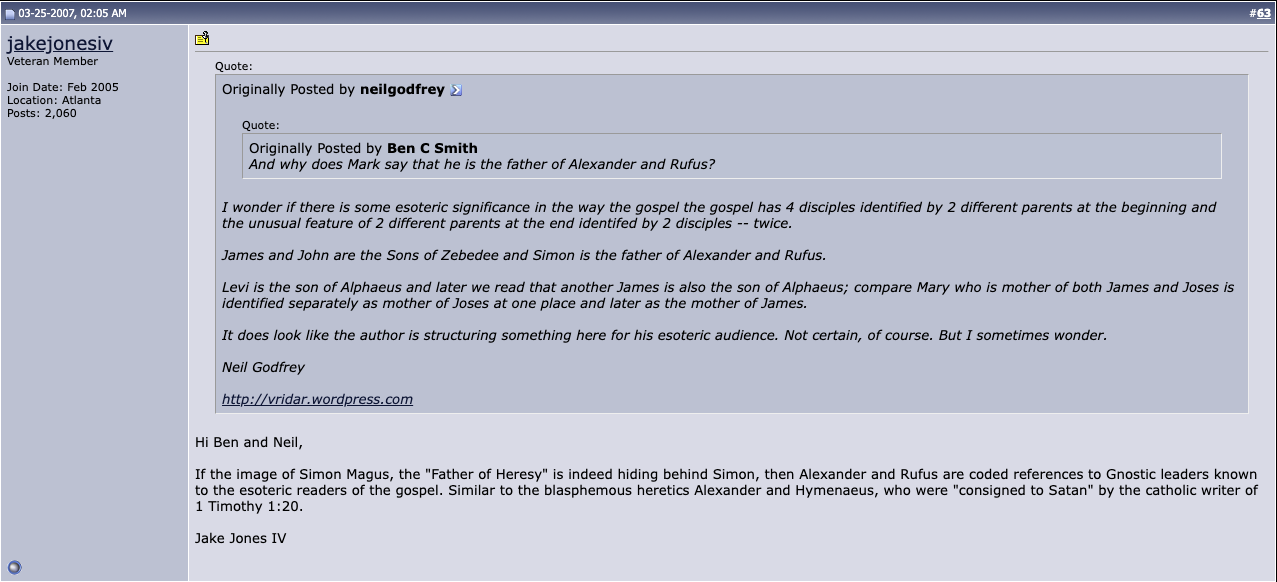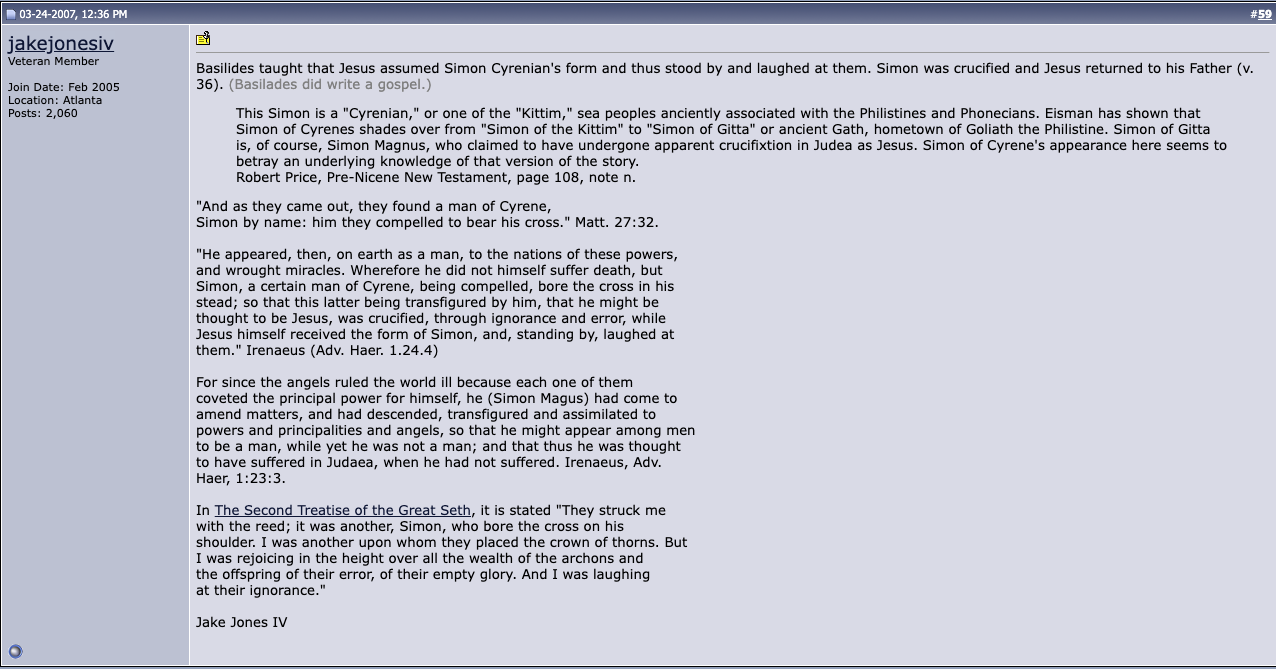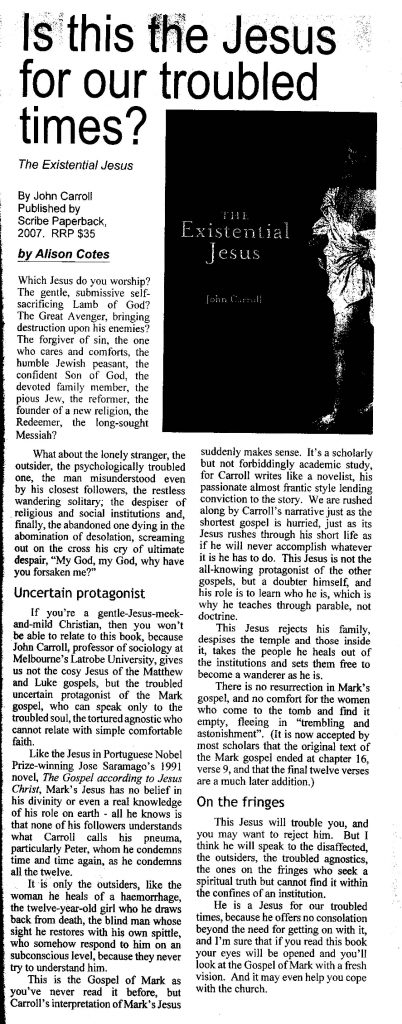Anyone who is a fan of Mark’s gospel will be absolutely mad if they don’t catch up with the podcast or transcript of interview with author of a new book (The Existential Jesus) on Mark’s gospel, John Carroll (yep, he’s a sociologist, “out of his field” and all that) at the Religion Report program site.
He argues that “Mark is one of the pinnacles of Western literature” (Vork, we’re not alone!), “I don’t think there’s anything like it in Western culture”, he’s a fan of Frank Kermode’s “Genesis of Secrecy” (I’ve already referred again to my notes on that, and how its a story that works on its sub text.)
Carroll says Matthew and Luke are boring by comparison — they want to tie Christianity in with the OT (missing Mark’s point entirely, or rejecting it), but that John was the only one who came close to understanding what Mark was saying.
Mark’s Jesus is not a teacher of morals and ethics, he gives up on trying to teach his disciples anything, Simon was named Peter to caricature him as the rocky ground (always jumping in with enthusiasm then withering at the first problem) — nice to find someone else who agrees with Tolbert on that, too! — Peter wants to build a church but Mark is anti-church, a fascinating interpretation of the transfiguration! He’s solitary, alone, angry, those closest to understanding him are Pilate and Judas. He’s not anti-Jewish and takes Jewish religion as a “prototype” for all religion, but is anti the whole Jewish culture that had to end. And his end is alone, without God, on a stake prefigured by the withered fig tree.
I’m sure I’m not going to agree with everything but I won’t be reading it to “agree” or “disagree” but to explore another perspective and think afresh!
Like this:
Like Loading...



